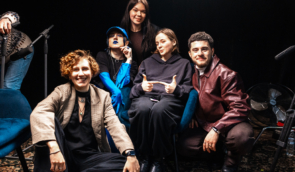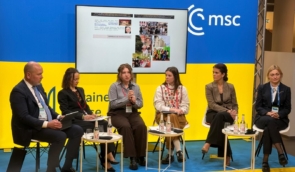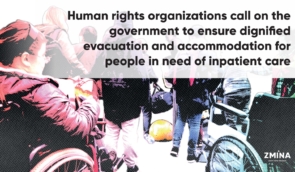Women behind bars: a press briefing on violations of the rights of political prisoners was held in Kyiv with the participation of Viktoriia Nesterenko
On 2 October, a press briefing and discussion “Women behind bars: violations of the right to medical care for political prisoners” was held at the Crimean Platform office with the participation of the Mission of the President of Ukraine in the Autonomous Republic of Crimea and the NGO “Numo Sisters”.
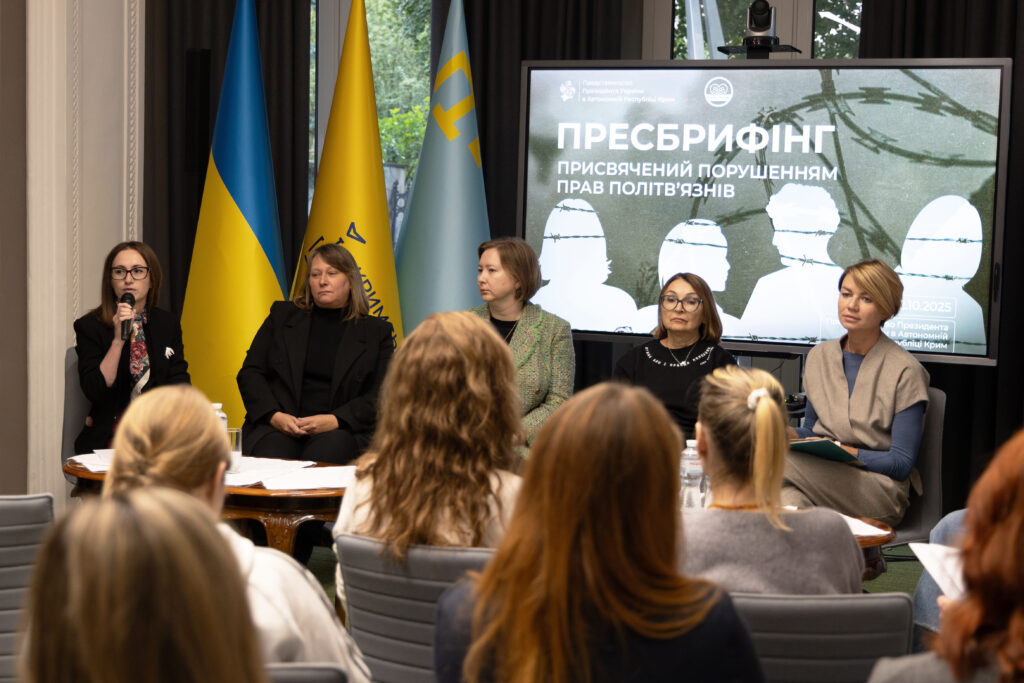
The briefing was attended by Liudmyla Huseinova, Head of the NGO Numo Sisters, Halyna Skipalska, Head of the International Charitable Foundation Ukrainian Foundation for Public Health, Olha Skrypnyk, Head of the NGO Crimean Human Rights Group, Liudmyla Shevchenko, Deputy Head of the Board of the NGO CrimeaSOS, Viktoriia Nesterenko, Project Manager of the Human Rights Centre ZMINA, as well as two political prisoners released in the framework of an exchange, Yuliia Panina and Svitlana Holovan.
The meeting was moderated by Liudmyla Shevchuk, Deputy Head of the Department for De-occupation and Reintegration of the Autonomous Republic of Crimea of the Mission. In her opening speech, Permanent Representative Olha Kuryshko emphasised the intensification of repression against women in the temporarily occupied peninsula and noted that non-violent resistance by women is growing, in particular through the activities of the organisation Zla Mavka.
“We must constantly talk about the fate of political prisoners and the crimes that Russia is trying to hide. For political prisoners, the Letters to Free Crimea initiative is proof that they are remembered and supported,” Olha Kuryshko emphasised.
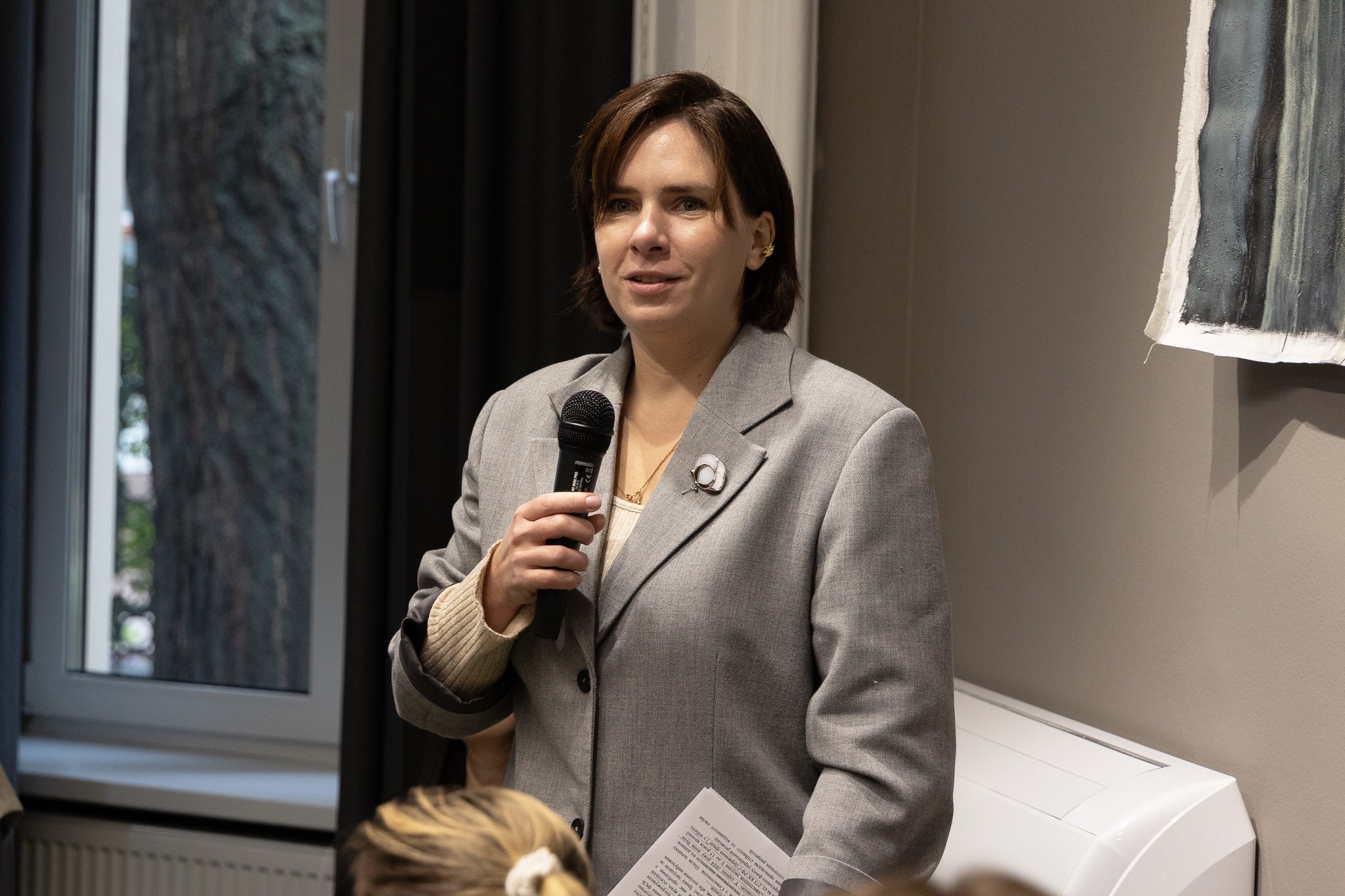 Olha Kuryshko
Olha KuryshkoThe Head of the NGO Numo Sisters, Liudmyla Huseinova, noted that all political prisoners should be treated equally, because, regardless of their location, they are being unlawfully held or transported to Russia. She also drew attention to the need for state protection of the children of political prisoners and spoke about the practice of “freezing” — prohibiting correspondence and communication with prisoners.
Viktoriia Nesterenko drew attention to the critical condition of political prisoners: of the 220 people held by Russia, 100 are ill, and 80 of them are denied medical assistance. One third of political prisoners have never received medical support during their entire time in prison.
According to Nesterenko, such actions can be classified as torture, as the conditions of detention significantly worsen people’s physical condition: “From the point of view of humanitarian law, such actions can be recognised as torture. The penitentiary system in Russia is degraded, and the situation in the occupied territories is even worse. It is absolutely impossible to stay healthy in prison: constant dampness, cold, lack of drinking water, and torture destroy a person’s physical condition. In addition, given the overcrowding of cells, diseases spread very quickly among prisoners“.
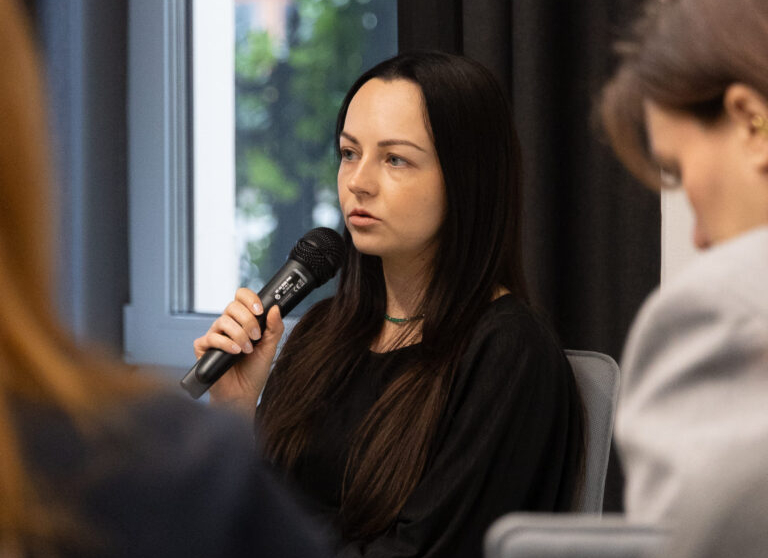 Viktoriia Nesterenko
Viktoriia NesterenkoFormer political prisoner Svitlana Holovan shared her personal experience: “There is no external support and no possibility of receiving medical assistance. Being separated from my family was a very difficult challenge for me — I did not know how my children were, whether they were healthy, whether everything was okay with them“.
The Head of the Crimean Human Rights Group, Olha Skrypnyk, noted that cruelty towards women in Crimea has increased: sentences now reach 22 years in prison, and psychological pressure includes threats against the children of prisoners.
Deputy Head of the Board of CrimeaSOS, Liudmyla Shevchenko, cited examples of violations of the medical rights of political prisoners, in particular the cases of Iryna Danylovych and Viktoriia Roshchyna, which had serious consequences for their health.
The Head of the International Charitable Foundation Ukrainian Foundation for Public Health, Halyna Skipalska, spoke about the SafeWomenHUB platform, which provides women with free psychological, social and medical support, as well as social housing for those returning from the occupied territories.
“Joint advocacy is only possible through the consolidation of efforts by various organisations. Only together can we effectively support the victims,” summarised Skipalska.
All participants of the event stressed the importance of drawing the international community’s attention to the fate of women political prisoners and protecting their rights.
Photo credit: the Mission of the President of Ukraine in the Autonomous Republic of Crimea.
If you have found a spelling error, please, notify us by selecting that text and pressing Ctrl+Enter.

